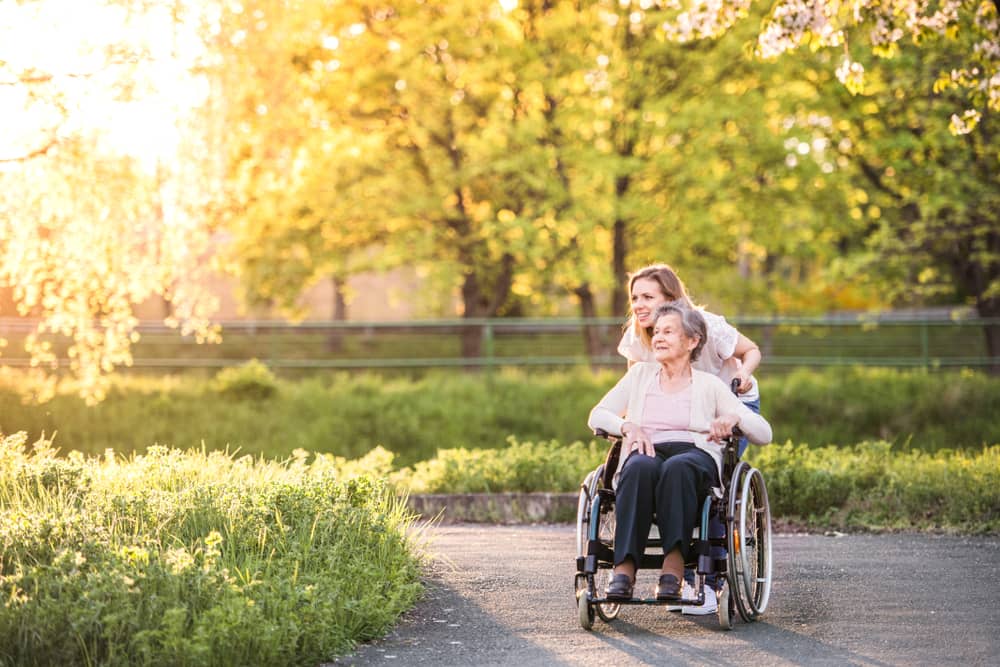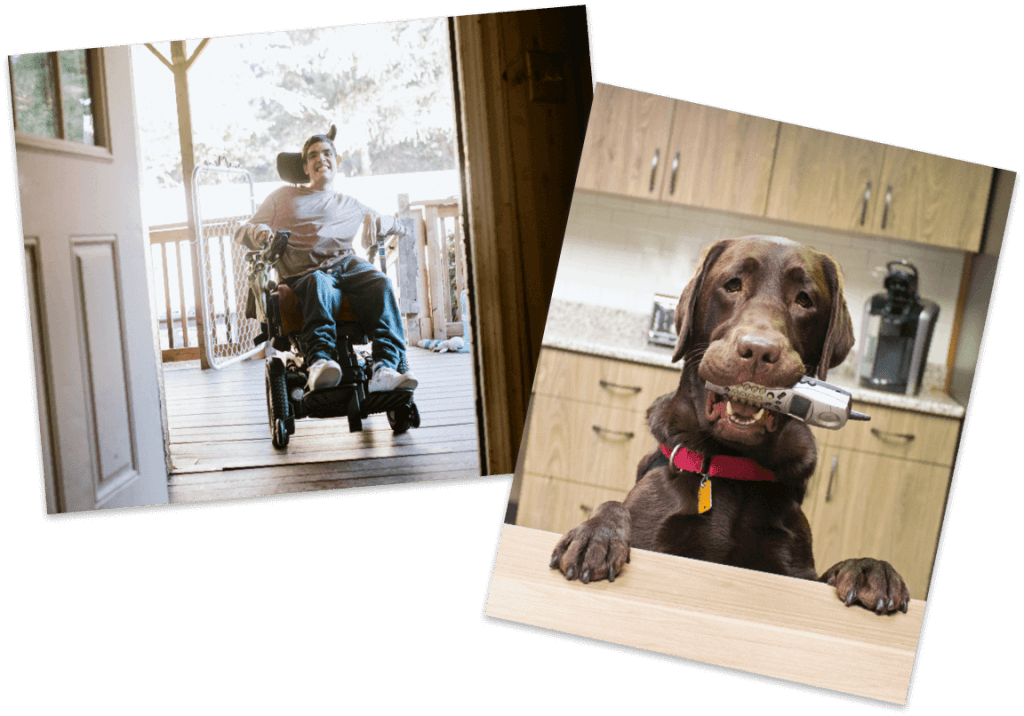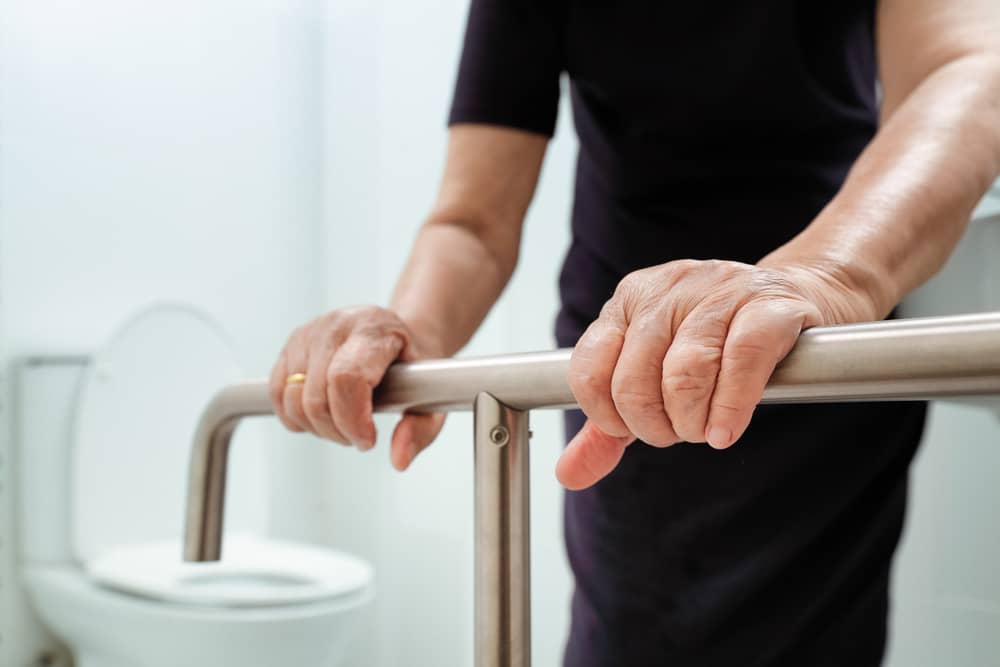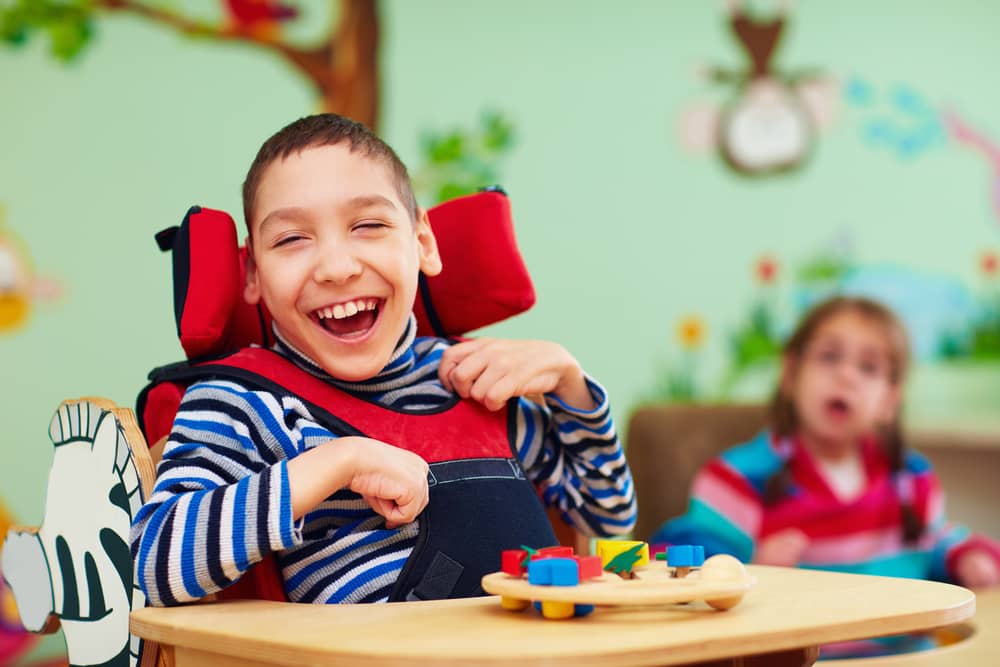If you’re in the market for adaptive devices for people with disabilities, you already know the wealth of products out there. From mobility and motor aids to cognitive and sensory systems, there’s an assistive device for everyone. In this blog, we’ll take a closer look at various types of assistive technology and sources for each to help you locate the right products for your needs.
Activities of Daily Living & Instrumental Activities of Daily Living
Before we dig into specific types of assistive technology, it’s important to understand activities of daily living (ADLs) and instrumental activities of daily living (IADLs). Your ability to perform ADLs and IADLs plays a key role in determining the adaptive medical equipment you need to live a full life.
The ability to perform ADLs and IADLs also determines the federal and state services, programs, and supports you qualify for. In most cases, an inability to perform two or more ADLs grants you access to both Medicaid and non-Medicaid state-funded assistance programs.
There are multiple online tools that allow you to assess your capability to perform activities of daily living. You can also receive a formal assessment through a doctor or occupational therapist, which may be covered by Medicare. And if you go through your local Area Agency on Aging (AAA), you’ll typically receive an ADL assessment when you apply for government assistance.
What are Activities of Daily Living (ADLs)?
ADLs are a series of basic activities you must perform on a daily basis to live independently at home or in your community. ADLs are typically broken down into five categories:
- Dressing and undressing
- Eating
- Maintaining continence
- Personal hygiene (showering, oral care, grooming, nail care, etc.)
- Transferring and mobility (standing, getting in/out of bed, walking independently, etc.)
What Are Instrumental Activities of Daily Living (IADLs)?
While they play an important role in living independently, instrumental ADLs aren’t usually required on a daily basis. It’s important to note that the inability to perform IADLs typically precedes the inability to perform ADLs. IADLs are usually divided into seven categories:
- Basic communication skills (phone, email, Internet, etc.)
- Household chores (laundry, vacuuming, dusting, dishes, etc.)
- Managing personal finances (budgeting, paying bills, avoiding scams, etc.)
- Meal preparation and planning
- Prescription management (correct doses, avoiding conflicts, getting refills, etc.)
- Shopping for food and clothing
- Transportation (driving, arranging rides, public transportation, etc.)
Now that we’ve defined ADLs and IADLs, let’s take a closer look at the types of assistive technology available for people with disabilities.

What Are Adaptive Devices for People with Disabilities?
Simply put, adaptive devices for people with disabilities are products, systems, and/or machines used to help people perform ADLs. More than 6.8 million Americans with short- and long-term disabilities use adaptive devices to help them live more independent, gratifying lives.
It’s important to understand the difference between adaptive and assistive technologies. Adaptive products are a subset of assistive technology and specifically designed for people with disabilities. There are hundreds of adaptive products available, and they can be custom-made, modified, or bought new off-the-shelf.

UDS Can Help You Live A Fuller Life With Our Comprehensive Services:
Planning & Support – Our dedicated planning & support teams help manage the care and services you need.
Personal Care & Independence – We’ve helped people with disabilities live more independently in their own homes since 1965.
Enrichment & Life Skills – Our variety of programs is dedicated to building skills for living well with a disability.
Who Can Benefit From Types of Assistive Technology?
People with any physical, mental, or emotional disability can benefit from the wide range of adaptive technologies available today. We’ll provide a brief overview of these disabilities below.
Mobility & Physical Impairments
If you have any of the following physical impairments, there are many adaptive devices that can help you live a fuller life. These disabilities include (but are not limited to) the following:
- Amyotrophic lateral sclerosis (ALS/Lou Gherig’s disease)
- Back and/or neck pain
- Brain injury (acquired or traumatic)
- Carpal tunnel syndrome
- Cerebral palsy
- Epilepsy
- Fibromyalgia
- Multiple sclerosis
- Muscular dystrophy
- Osteoarthritis
- Rheumatoid arthritis
- Spina bifida
- Spinal cord injury
- Stroke
Cognitive & Sensory Impairments
Adaptive medical equipment and devices also benefit people with the following cognitive and sensory disorders:
- Anxiety disorders (generalized anxiety disorder, panic disorder, phobias, obsessive-compulsive disorder (OCD), social anxiety disorder, etc.)
- Attention-deficit disorder (ADD)
- Attention-deficit/hyperactivity disorder (ADHD)
- Autism
- Bipolar disorder
- Depression
- Eating disorders
- Hearing disabilities (complete or partial deafness)
- Personality disorders
- Post-traumatic stress disorder (PTSD)
- Schizophrenia
- Speech disorders
- Vision disabilities (blind or low vision)
Types of Adaptive Medical Equipment for People with Disabilities
Adaptive devices are available for people with a wide range of disabilities, including physical, mental, and emotional impairments. We’ll examine types of assistive technology for each disability category in more detail below.
Mobility Aids
Assistive devices for mobility are designed to help people with physical disabilities live more active, functional lives. Mobility aids include (but are not limited to) the devices and systems below:
- Adaptive bikes and strollers
- Canes
- Complex rehabilitation technology
- Crutches
- Custom wheelchair seating
- Gait trainers
- Lift vans
- Manual wheelchairs
- Mobility and rehabilitation equipment
- Orthotic and prosthetic devices
- Scooters
- Standing devices
- Trunk stabilizers and sit-up assist rails
- Walkers and rollators

Mobility aids for people with disabilities also include the following physical modifications to homes and businesses:
- Accessible bathrooms and bedrooms
- Accessible lighting
- Automatic door openers
- Ceiling track lifts
- Door and hallway widening
- Emergency exits
- Grab bars
- Handicap ramps
- Low-pile carpet and smooth flooring
- Stairlifts and porch lifts
Cognitive & Sensory Aids
There are also many different adaptive devices available for people with cognitive and sensory disabilities. These aids help individuals who struggle with memory, attention, or other visual, hearing, and intellectual impairments.
You’ll find examples of adaptive medical equipment for people with sensory and cognitive disabilities below:
- Amplified telephone equipment
- Augmentative & Assistive Communication systems (AACs)
- Braille printers
- Closed captioning
- Communication boards
- Computer screen enlargement applications
- Eye-tracking computer systems
- Hearing aids and cochlear implants
- Internet of Things (IoT) – enabled devices
- Lights on telephones and doorbells
- Screen readers
- Sip-and-puff systems
- Teletype phones
- Voice-to-text typing software
- Voice recognition programs
Motor Aids
Individuals who struggle with fine and gross motor skill impairments can also benefit from adaptive devices for people with disabilities. There are motor aids to help people with nearly any disability you can think of, and they include (but are not limited to) the following:
- Adapted writing utensils
- Adaptive switches for switch-enabled devices
- Arthritis key holders/turners and plug pullers
- Assistive devices for folding
- Automatic page turners and book holders
- Doorknob latch handle extenders
- Dressing aids (button hooks, zipper pulls, elastic shoelaces, sock aids, dressing sticks, etc.)
- Eating aids (adaptive utensils, non-skid bowls, long straws, straw holders, plate guards, etc.)
- Hygiene aids (toothpaste and soap dispensers, bath mitts, long-handled sponges, etc.)
- Lamp switch and wall light switch plate extenders
- Leverage-operated car door openers
- Loop scissors
- Mouth sticks and head wands
- Reach extenders
- Risers for beds, chairs, couches, and tables
- Turning knob operators
- Universal turning handles
- Wheelchair computer and tablet mounts
Sources of Adaptive Devices for People with Disabilities
Are you interested in adaptive medical equipment but aren’t sure where to get started? Here are four of our favorite sources of assistive products and systems for individuals with disabilities.
Ability Hub
Ability Hub is dedicated to providing information on adaptive equipment and alternative methods for accessing computers for people with disabilities. Their website has a wealth of resources on the following assistive technologies:
- AAC systems
- Computer keyboard and mouse alternatives
- Mobile apps for the visually impaired
- OCR software
- Reminder wristwatches and portable devices
- Screen magnification software
- Speech recognition software
- Switches
- Text-to-speech readers
- TTY software

AdaptiveMall.com®
AdaptiveMall.com® helps families obtain adaptive equipment to support and empower children with disabilities. Here are just a few of the assistive products they offer:
- Active seating
- Adaptive beds
- Bathing accessories
- Bicycles and tricycles
- Car seats
- Commodes
- Floor seating
- Gait trainers
- Mobile/portable seating
- Recline/tilt-in-space seating
- Strollers
- Swings and standers
- Walkers
Enabling Devices
Enabling Devices offers a wide range of products designed to help people of all abilities and ages live more fulfilling lives. You’ll find a handful of the products they offer below:
- AAC devices (icon holder kits, announcers, communicator boards, etc.)
- Auditory and tactile symbol communicators
- Electronics holders
- Hands-free air mice
- Motorized scooter boards
- Occupational therapy tools
- Sensory products (ball chairs, crash pads, LED projectors, sensory lights, etc.)
- Switches (adjustable angle, button click, compact, cushion grip, joysticks, etc.)
Mobility Express
Mobility Express offers a comprehensive range of wheelchair-accessible vans, powered mobility equipment, and high-capacity elevated stairlifts. They also provide custom home modifications for bathrooms and kitchens. Their product selection includes:
- Auto lifts
- Ceiling track lifts
- Hospital beds
- Lift chairs
- Mobility scooters
- Patient lifts
- Powerchairs
- Stairlifts
- Vertical platform lifts
- Wheelchair lifts
Let UDS Help You Find Adaptive Devices for People with Disabilities
At UDS, we’ve been helping people who are living with disabilities, aging, or recovering from an injury live more independently for over 50 years. We’ll work with you to secure rehabilitation equipment, get you fitted for custom wheelchair seating, and help you obtain financial assistance. And if you need accessible home modifications, we’ll connect you with an experienced contractor who can help you stay in your home for as long as possible.